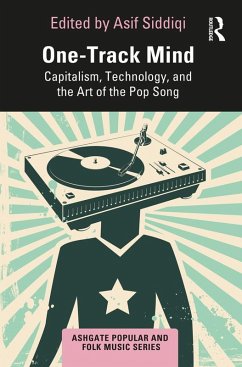
Made in Germany (eBook, PDF)
Studies in Popular Music
Redaktion: Seibt, Oliver; Wickström, David-Emil; Ringsmut, Martin
Versandkostenfrei!
Sofort per Download lieferbar
39,95 €
inkl. MwSt.
Weitere Ausgaben:

PAYBACK Punkte
20 °P sammeln!
Made in Germany: Studies in Popular Music serves as a comprehensive introduction to the history, sociology, and musicology of contemporary German popular music. Each essay, written by a leading scholar of German music, covers the major figures, styles, and social contexts of pop music in Germany and provides adequate context so readers understand why the figure or genre under discussion is of lasting significance. The book first presents a general description of the history and background of popular music in Germany, followed by essays organized into thematic sections: Historical Spotlights; G...
Made in Germany: Studies in Popular Music serves as a comprehensive introduction to the history, sociology, and musicology of contemporary German popular music. Each essay, written by a leading scholar of German music, covers the major figures, styles, and social contexts of pop music in Germany and provides adequate context so readers understand why the figure or genre under discussion is of lasting significance. The book first presents a general description of the history and background of popular music in Germany, followed by essays organized into thematic sections: Historical Spotlights; Globally German; Also "Made in Germany"; Explicitly German; and Reluctantly German.
Dieser Download kann aus rechtlichen Gründen nur mit Rechnungsadresse in A, B, BG, CY, CZ, D, DK, EW, E, FIN, F, GR, HR, H, IRL, I, LT, L, LR, M, NL, PL, P, R, S, SLO, SK ausgeliefert werden.













